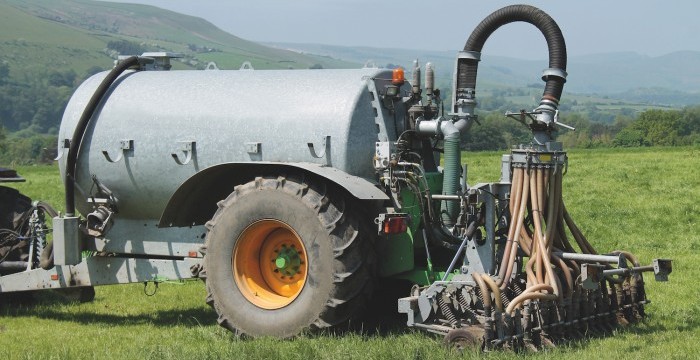The NPA has called for more ‘outcome-focused’ approach to environmental policy to replace the current ‘inflexible’ system.
In the NPA’s response to the Government’s review of the nitrates and slurry storage regulations, NPA policy services officer Lizzie Wilson makes it clear that the nitrates regulations are currently ‘too prescriptive and have historically been guided by ease of administration of compliance, rather than being outcome based’.
She said: “Closed periods, for example, are far too inflexible and do not consider other influencing factors, such as weather, soil type, soil cover, environmental constraints or the local landscape and risk a failure to achieve the best environmental outcome.
“I also suggested that, as the costs associated with compliance are significant and varied, the most effective way to improve compliance is for the Government to provide farmers with greater financial support, with the priority being slurry storage.
“Grants for slurry storage are consistently absent from any financial support offered by government, but are most desperately needed and would significantly improve compliance and reduce nitrate pollution.”
The NPA response also points out that guidance specific to the nitrates regulations is now difficult to find and understand since the transition from separate websites to the centralised gov.uk site, meaning farmers are struggling to follow the rules and requirements. Previously, farmers were issued with a complete booklet to help them, which is now dispersed across different web pages.
The consultation asks: “Is the existing form of Government Regulation the correct approach? If so, what alternative model would you suggest?”
Mrs Wilson said: “We have proposed a more outcome-focused environmental policy, which allows the use of central data to better target areas of risk/specific issues and would permit farmers to manage their land and animals accordingly whilst trying to deliver a set objective within the appropriate parameters.”
Water risk
The NPA response also covers the issues around water. “As animal management practices and building/yard design have changed dramatically over the years, with many farms now collecting, separating and treating water, water from farms will show different degrees of contamination from minimal to potentially highly polluting. So it is crucial that the risk is assessed and managed effectively,” Mr Wilson said.
“Therefore, pig units are potentially collecting a lot of water unnecessarily, and this winter has really highlighted a distinct lack of resilience with regard to slurry storage.”
NPA has suggested that a review of what constitutes a dirty yard and therefore dirty water and dilute slurry would be beneficial.
“Where best practice is adopted, are there opportunities to use biological treatment such as swales for lightly or intermittently contaminated run-off to reduce the overall volume which has to be stored and spread, similar to EPR? This could also include FYM, silage clamps and open yards,” Mrs Wilson added.




